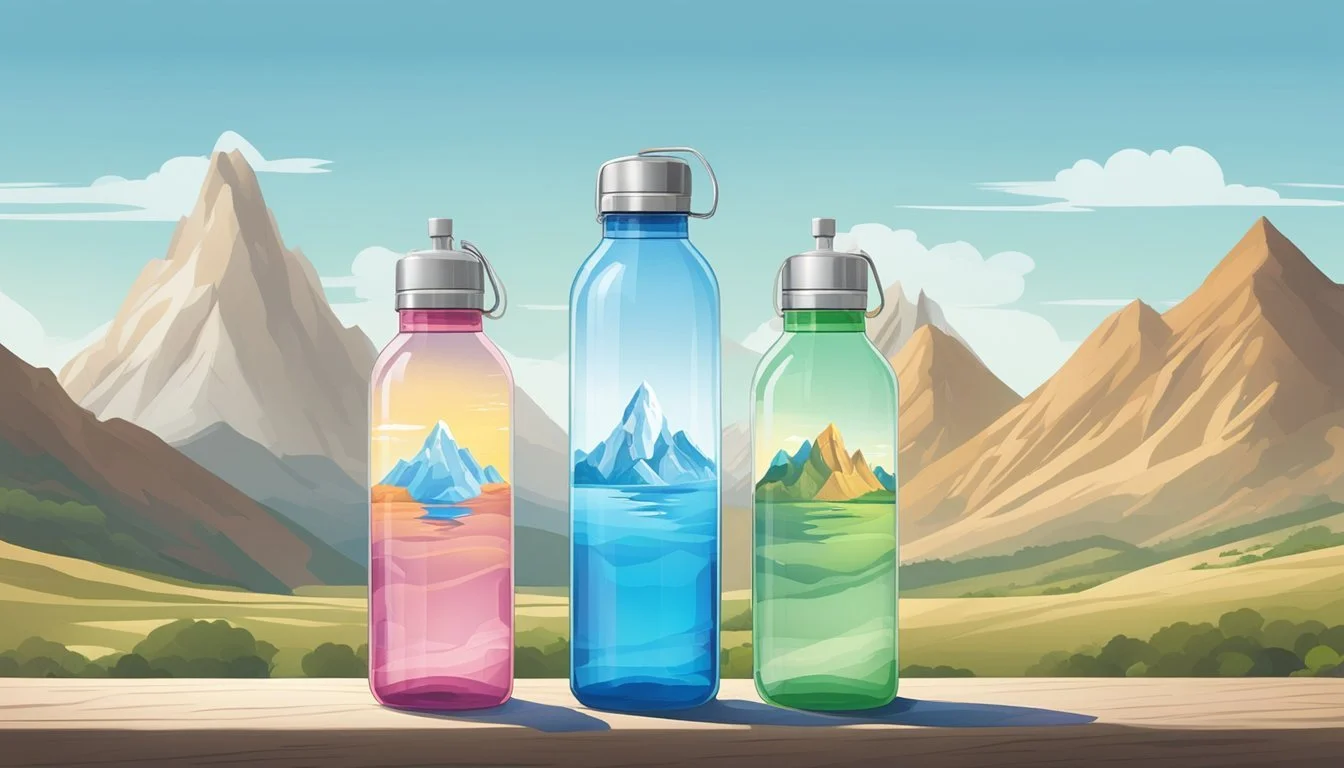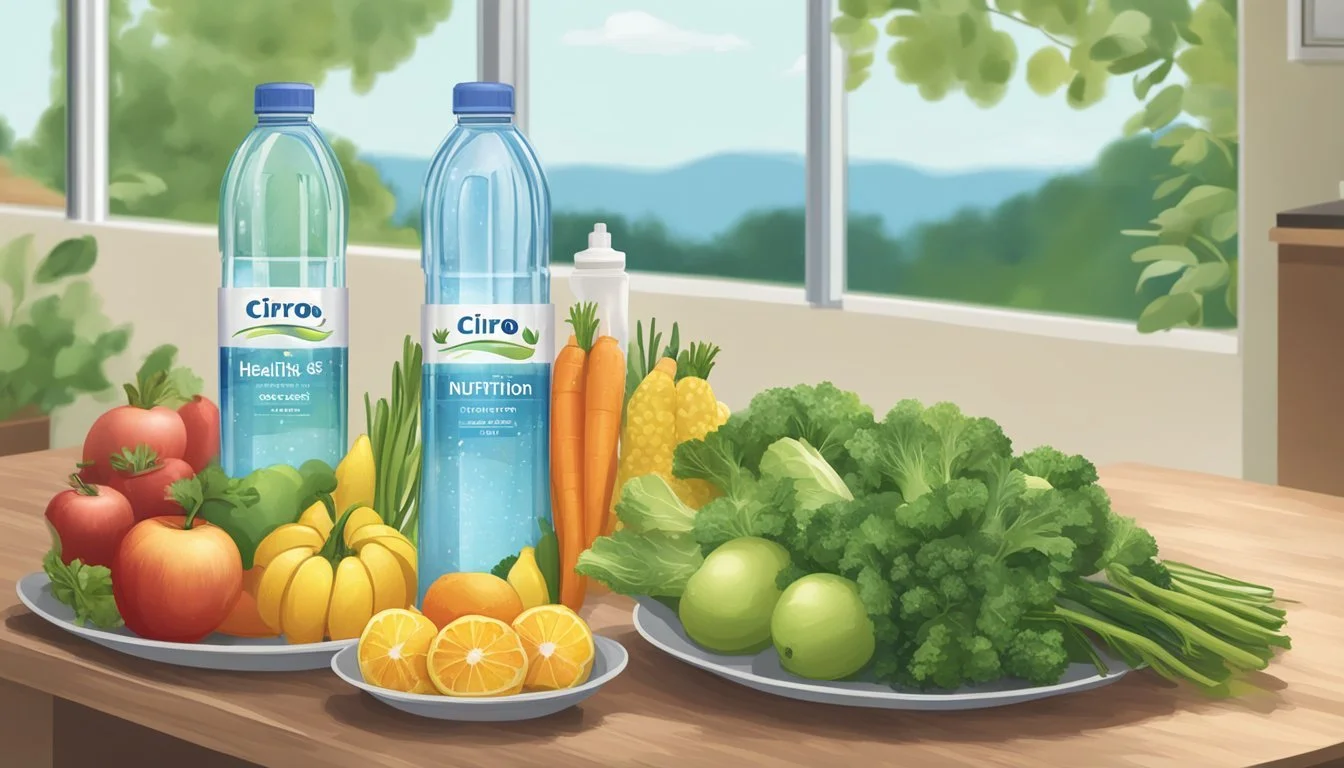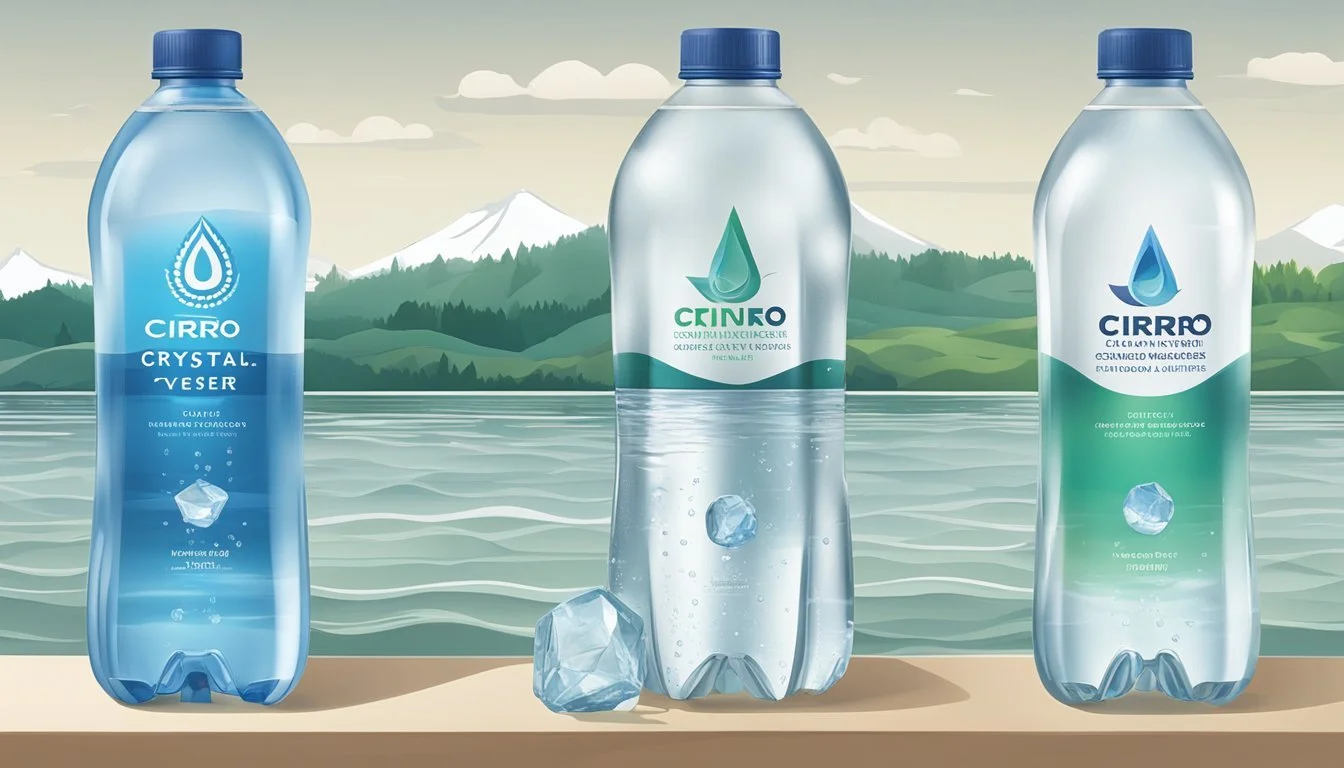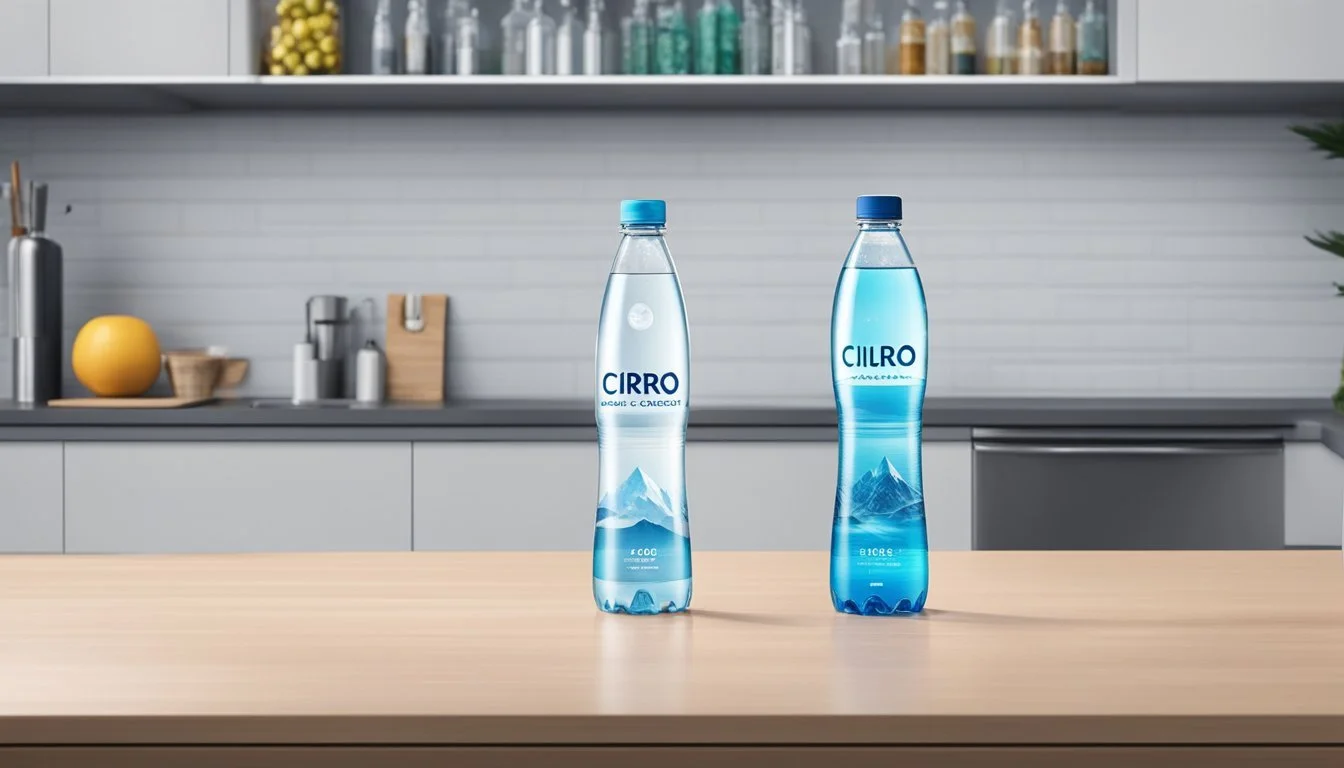Cirro vs. Crystal Geyser
Comparing Top Bottled Waters
Choosing the right bottled water can make a significant difference in taste, quality, and overall satisfaction. When comparing Cirro and Crystal Geyser, it's essential to evaluate their sources, flavors, and popularity. Cirro water, known for its crisp and refreshing taste, often scores high marks among water enthusiasts and is preferred for its clean, smooth texture.
Crystal Geyser, while more economically priced and widely available, often receives mixed reviews regarding its taste. The brand touts its "bottled at the source" claims, yet the transport before bottling can impact its freshness. For those who prioritize cost over taste, Crystal Geyser might be a more suitable option, but it lacks the premium quality that Cirro offers.
Both brands have their merits, but if taste and premium quality are your deciding factors, Cirro stands out as the better choice. This comparison will delve deeper into various aspects of each brand, offering insights to help you make an informed decision.
Understanding Bottled Water
Bottled water comes in various types, each with specific characteristics. Ensuring the safety and quality of bottled water involves adhering to stringent regulatory standards.
Types of Bottled Water
Spring Water: Bottled at the source, from an underground formation, spring water must maintain its natural properties. It often contains minerals picked up during its journey through rocks.
Mineral Water: This water contains a required amount of naturally occurring dissolved minerals like calcium and magnesium. The mineral content must stay constant to qualify as mineral water.
Tap Water: Some bottled waters use municipal sources, treated similarly to regular tap water. While convenient, tap water can have added substances or variations in taste.
Electrolyte-Enhanced Water: Some bottled waters get fortified with electrolytes like sodium, potassium, and chloride. These nutrients can help maintain hydration and bodily function, especially after exercise.
Regulatory Standards for Safety and Quality
International Bottled Water Association (IBWA): The IBWA sets stringent standards to ensure bottled water safety. These standards cover sourcing, bottling processes, and labeling requirements.
Environmental Working Group (EWG): The EWG analyzes bottled water brands for contaminants, promoting transparency around water quality and safety.
FDA and EPA Regulations: In the United States, the FDA regulates bottled water’s safety, ensuring it meets specific standards. The EPA regulates public drinking water, including tap water, to ensure it's safe for consumption.
Testing and Monitoring: Regular testing is mandatory for bottled water, assessing levels of contaminants, bacteria, and other potential hazards.
These regulations and standards ensure that bottled water is consistently high-quality and safe for consumers.
Exploring the Brands: Cirro and Crystal Geyser
Cirro and Crystal Geyser are two distinct brands in the bottled water market, each with unique origins, water sources, and commitments to environmental sustainability.
Historical Background and Origin
Cirro is a relatively new player in the bottled water industry, making its debut in recent years. It aims to cater to consumers looking for premium, pure bottled water.
Crystal Geyser, on the other hand, boasts a much longer history. Founded in 1977 by CG Roxane, Crystal Geyser is known for its Natural Alpine Spring Water sourced from natural springs in California. This longer history has allowed Crystal Geyser to establish a solid reputation in the market.
Water Source and Production Processes
Cirro sources its water from various protected springs. The water undergoes multiple filtration processes to ensure purity before bottling.
Crystal Geyser's water comes exclusively from natural alpine springs, specifically in California and other states. This source provides a consistent, high-quality product. CG Roxane ensures that the water is bottled at the source, maintaining its natural quality without additional chemical treatments. The commitment to bottling at the source ensures minimal contamination and retains the natural taste.
Environmental Commitments and Sustainability
Cirro emphasizes sustainability by using eco-friendly packaging and supporting environmental initiatives. The brand aims to reduce its carbon footprint through efficient production processes.
Crystal Geyser also prioritizes environmental stewardship. They follow sustainable practices by maintaining the health of their spring sources and minimizing environmental impacts. Crystal Geyser collaborates with organizations like the Environmental Working Group to stay informed about environmental issues and improve practices. The use of recyclable materials in their packaging underscores their dedication to sustainability.
Health and Nutrition
Cirro and Crystal Geyser are evaluated on their pH levels, mineral content, hydration benefits, and potential contaminants to determine which offers a healthier option for consumers.
pH Levels and Mineral Content
Cirro typically has a neutral to slightly alkaline pH, ranging from 7 to 8. This makes it an excellent choice for those who prefer balanced hydration without extra acidity. Mineral-wise, Cirro includes essential elements like magnesium and calcium, beneficial for overall health.
Crystal Geyser is known for its natural spring water, with a pH that hovers around 7.1 to 7.5. It contains various minerals such as calcium, magnesium, and potassium, which can contribute positively to daily nutritional intake.
Comparing both, while both brands provide essential minerals, Cirro's higher pH might appeal more to those seeking to neutralize acidity in their diet.
Benefits of Hydration
Proper hydration is vital for maintaining bodily functions such as temperature regulation, joint lubrication, and nutrient transport. Cirro offers excellent hydration benefits due to its balanced mineral content and alkaline nature, which may aid in effective absorption and utilization by the body.
Crystal Geyser also excels in promoting hydration with its natural mineral content. Its slightly alkaline spring water helps maintain fluid balance, which is critical for physical activity and overall well-being.
Both brands can effectively meet daily hydration needs, but Cirro’s slightly alkaline water might give it a slight edge in providing a smoother, more satisfying hydration experience.
Safety Concerns and Contaminants
When assessing safety, it is crucial to consider potential contaminants like lead and chromium. Cirro adheres to stringent safety standards, ensuring minimal contaminants and safe consumption. Regular testing shows its compliance with health regulations, making it a reliable choice for consumers.
Crystal Geyser also maintains high safety standards but has faced scrutiny in the past regarding possible contaminants, such as traces of chromium-6. However, the company conducts frequent quality checks and tends to address these concerns promptly.
In summary, while both Cirro and Crystal Geyser are committed to safety, Cirro's stringent measures and consistent track record might make it a preferable option for health-conscious individuals.
Comparing Taste and Texture
Cirro and Crystal Geyser offer distinct experiences in terms of taste and texture. Consumers consistently highlight these differences in their flavor profiles and sensory feel.
Flavor Profiles of Cirro vs. Crystal Geyser
Cirro water is often praised for its crisp, clean taste with a hint of sweetness. It appeals to consumers seeking a refreshing experience with minimal aftertaste. The mild mineral content adds a subtle complexity that enhances its overall appeal without overwhelming the palate.
Crystal Geyser, on the other hand, has a more pronounced mineral taste. Some consumers find it slightly skunky with a dry finish. This spring water's salinity and unique taste make it less preferred by those who favor a purer water taste. While its texture remains smooth, the flavor can be divisive.
Bottled Water in the Market
Bottled water is a ubiquitous product with a vast array of brands, types, and features. It’s essential to understand market positioning, packaging innovations, and consumer trends to navigate this diverse marketplace.
Market Position and Competitive Brands
Bottled waters occupy various market positions, from budget-friendly options like Dasani and Aquafina to premium brands such as Evian, Fiji, and Voss. Each brand targets specific consumer segments. Dasani and Aquafina dominate due to their affordability and availability, backed by major beverage companies, Coca-Cola and PepsiCo, respectively.
On the premium front, brands like Evian and Fiji are often preferred for their distinct taste profiles and higher mineral content. Core Hydration, Essentia, and Smartwater cater to health-conscious consumers looking for pH-balanced and electrolyte-enhanced waters. Perrier and San Pellegrino lead in the sparkling water segment, attracting those who prefer a fizzy alternative.
Packaging Innovations and Variants
The bottled water industry has seen significant advancements in packaging. Traditional plastic bottles are still common, but many brands are adopting eco-friendlier options. Boxed Water and Path are notable for their use of sustainable, recyclable packaging materials. LIFEWTR integrates artistic designs on their bottles, enhancing aesthetic appeal.
Brands also offer various package sizes and types to cater to different needs. Nestle Pure Life and Poland Spring provide large gallon jugs for home use, while many brands offer portable, single-serving bottles. Premium waters like Voss often utilize glass bottles, which not only enhance the drinking experience but also signal luxury. Innovations like self-cleaning bottles and flavored water variants also cater to diverse consumer preferences.
Consumer Trends and Choices
Consumer preferences in bottled water are shaped by health considerations, environmental concerns, and lifestyle factors. There is a growing demand for products perceived as healthier or more natural, such as Icelandic Glacial and Acqua Panna, which boast pristine sources.
Sustainability is becoming a crucial factor, with consumers favoring brands that demonstrate eco-friendly practices. For instance, Arrowhead and Ice Mountain emphasize their commitment to reducing plastic use and promoting recycling. Sparkling water brands like La Croix and Perrier are popular among those looking for a healthier alternative to sugary sodas.
Younger consumers, in particular, are driving trends towards enhanced waters with added benefits, such as Penta and Essentia. Bold marketing strategies and endorsements by celebrities and influencers also play a significant role in shaping preferences, making brands like Smartwater and LIFEWTR highly appealing.
Consumer Insights
Insights gathered from various consumer channels provide an understanding of the preferences and experiences of those who purchase Cirro and Crystal Geyser bottled waters. These channels include email surveys, social media interactions, and direct consumer feedback.
Email and Social Media Engagement
Cirro and Crystal Geyser have active presences on platforms such as Twitter and Signal. Consumer engagement often includes hashtags like #WaterQuality and #ChooseCrystal.
Cirro's email campaigns highlight purity and taste, with 80% of respondents expressing satisfaction with these aspects. Crystal Geyser experiences similar engagement, with 70% of email respondents praising the affordability and availability of their products.
Twitter interactions reveal that Cirro consumers frequently share positive experiences tied to the product's crisp taste, while Crystal Geyser users laud the brand for its commitment to sustainable practices.
Consumer Feedback and Testimonials
Direct feedback provides deeper insights into consumer satisfaction. For Cirro, testimonials often mention the refreshing taste and premium quality. One consumer noted, "Cirro water has an unmatched purity that makes it my top choice."
Crystal Geyser receives mixed reviews; some consumers appreciate the value for money, while others express concern over quality inconsistencies. A recent testimonial read, "Crystal Geyser is reliable but doesn't always meet my taste expectations."
Each brand benefits from consumer insights to refine their products and marketing strategies, ensuring they meet the needs and preferences of their target audiences effectively.
Economic and Geographic Factors
The production and distribution of bottled water like Cirro and Crystal Geyser impact local economies and vary by region. Understanding these factors can help consumers make informed choices based on economic benefits and distribution efficiency.
Impact of Local Economies
Bottled water companies often establish plants in areas with abundant water resources. Crystal Geyser sources water from natural springs in various states, including California. This can boost local economies by providing jobs, increasing local spending, and enhancing infrastructure.
Similarly, Cirro operates in regions like Texas and Pennsylvania. The presence of these operations stimulates economic growth through employment and local investments. Public sentiment around job creation can positively influence consumer preferences, making locally-sourced brands more appealing.
However, it's essential to consider environmental implications. Over-extraction of water resources can lead to depletion and negatively affect local agriculture and ecosystems. Responsible sourcing practices are crucial for maintaining a balanced impact on the economy and the environment.
Distribution Across States and Countries
The distribution of Cirro and Crystal Geyser across states such as Florida, Maine, Michigan, and others ensures that these brands are readily available to a wide consumer base. Cirro primarily targets markets in the southern and eastern United States, including Texas and Carolina, offering an extensive distribution network that supports consumer accessibility.
Crystal Geyser, on the other hand, has a broader distribution network that extends not just across the United States but also internationally. Key markets include states like New York, California, and Wisconsin. Their wide reach allows them to cater to diverse consumer needs, while also creating logistical challenges.
Efficient distribution requires sophisticated supply chain management. Both companies invest in streamlined logistics and transportation networks to maintain product quality during transit. Pricing can also vary based on regional distribution costs, impacting the overall cost to consumers.
Legal and Ethical Considerations
Legal and ethical considerations surrounding bottled water touch on various aspects including corporate practices and consumer rights. These areas are crucial for buyers who wish to make informed and responsible choices.
Corporate Responsibility
Corporate responsibility in the bottled water industry covers environmental practices, transparency, and ethical sourcing. Cirro and Crystal Geyser face scrutiny over their operational practices and impact on natural resources. Investigative journalist Ryan Felton has highlighted issues such as excessive groundwater extraction and pollution, often leading to long-term ecological damage.
Crystal Geyser, in particular, has faced lawsuits accusing it of misleading marketing and non-compliance with safety standards. Allegations of corporate malfeasance include failure to disclose contaminants like microplastics and toxic PFAS chemicals. Such practices can contribute to public health risks, including cancer. Companies must ensure they operate transparently and adhere to both legal and ethical standards to maintain consumer trust and environmental sustainability.
Consumer Protection and Advocacy
Consumer protection in the bottled water sector focuses on accurate labeling, safety, and quality assurance. Advocacy groups and investigations, such as those reported by Consumer Reports, often reveal discrepancies between marketed claims and actual product contents. Cirro and Crystal Geyser must comply with stringent regulations to guarantee safety.
It's essential for consumers to demand clarity on the water sources, potential contaminants, and health risks. Consumer advocates can play a significant role in holding companies accountable and pushing for stricter regulations. Public awareness campaigns and reporting by investigative journalists spotlight risks that consumers otherwise might overlook. Effective consumer protection ensures people can trust the products they purchase are safe and ethically produced.
Innovation and Future Trends
Cirro and Crystal Geyser are continuously evolving to meet consumer demands, focusing on advancements in filtration and emphasizing eco-friendly practices in their production methods.
Advances in Filtration Technology
Both Cirro and Crystal Geyser employ state-of-the-art filtration technologies. Cirro uses reverse osmosis to purify its water, ensuring it is free from contaminants. This method provides exceptionally clean water, often considered purer than bottled water filtered by simpler methods.
Crystal Geyser uses advanced filtration processes but relies more on natural spring sources. While this offers a different taste profile, it might not remove all contaminants. However, continuous improvements in filtration methods are key to maintaining their market position.
Eco-Friendly Practices and Alternative Options
Sustainability is a primary concern for both brands. Cirro has introduced bottles made from recycled materials and is exploring biodegradable packaging options. This aims to reduce their environmental footprint significantly. Coca-Cola and Nestlé, major industry players, are also working on similar sustainable packaging initiatives.
Crystal Geyser has adopted eco-conscious practices by optimizing its bottling processes and reducing plastic usage. Furthermore, they encourage consumers to use filtered tap water when possible, promoting a more sustainable alternative compared to conventional bottled water. Embracing innovative packaging solutions and supporting the reduction of plastic waste demonstrate both brands' commitment to the environment.
Conclusion
Cirro and Crystal Geyser both bring unique qualities to the bottled water market.
Cirro is notable for its crisp and refreshing taste. It's particularly popular among those who prefer neutral pH water.
Crystal Geyser, on the other hand, is known for being affordable and widely available. It maintains a reputation for consistency and having a smooth flavor.
When it comes to water source transparency, both brands highlight their commitment. Consumers looking for reliable daily hydration might appreciate Crystal Geyser’s value.
In terms of taste tests, Crystal Geyser generally falls into the mid-tier category. It's considered passable but not overwhelmingly memorable.
For those who prefer a carbonated option, Crystal Geyser’s sparkling water also received praise for its minimal carbonation.
Ultimately, the bottom line is that preference between these two brands can come down to taste and personal priorities. Both offer safe and reliable hydration options.






